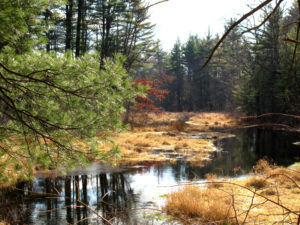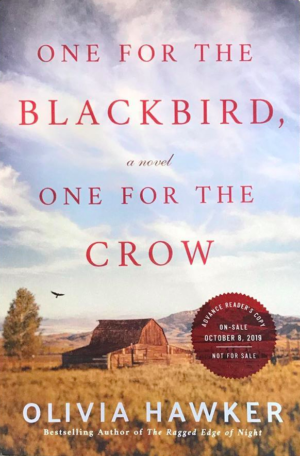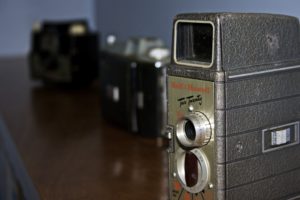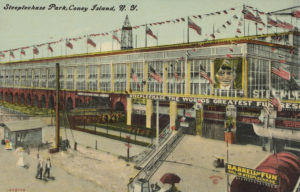Yo No Soy Marinero
In front of the jukebox, a boy danced by himself, beer in one hand and cigarette in the other. He might have been eighteen. His bare feet scraped patterns in the sand on the cement floor as “La Bamba” streamed out of the jukebox in the small Mexican bar. Burke took a swig of his Tecate. A dozen people sat scattered against the bar to Burke’s left—locals, expats, and college kids on spring break. A breeze off the bay came in from the patio and carried the cigarette smoke out the open front door. The boy stumbled and fell to the floor, landed on his back. Conversations around the bar stopped. Heads turned. He lay still for a moment, his poncho flipped over his face. The beer bottle rolled out of his open hand and across the floor. Burke stopped it with his foot.
“Whoa! Yeah!” the boy shouted as he sat up.
Conversations resumed. Burke shook his head and took another sip of beer. The boy crawled across the floor to his runaway bottle.
“Thanks for stopping this, man.” He clutched his beer in one hand and used the other to pull himself up to the bar. He swayed in a slow arc as he chugged the rest of his Pacifico. His hand gripped the edge of the stained plywood counter top. He came to rest, shoulder to shoulder with Burke. Sand fell from his poncho.
“Sorry, man. You didn’t happen to see my cigarette, did you?”
Burke shook his head.
“That’s all right. I’m trying to stop anyway.”
The boy put the empty bottle on the bar and pulled himself up straight. He managed to snag a nearby stool and shove it under him on the third try.
“Bartender. One more round,” he said, his left forefinger pointed toward the ceiling at the far end of the room. He put a ball of crumpled bills on the counter when the beer arrived. The bartender picked through the money until he got what he needed.
Burke took another sip. At the opposite end of the bar, the two men he’d driven down with—one in his late forties, the other older—and a couple local women, hit the empty space they called a dance floor. The jukebox continued to pump out songs. More people entered the bar.
“I love that song,” the boy said, as “La Bamba” started for the third time. “Do you love that song?”
Burke shook his head.
“It’s a great song. I could listen to it forever.”
“I think we’re all listening to it forever.”
“Bartender.” The boy waved for Jorge to come over.
“Hey, man. Can I get like three dollars worth of quarters?”
“No.”
“Why not, man?”
“Cause all you gonna do is play ‘La Bamba’.”
“But it’s a great song, man.”
“Not any more it ain’t.” Jorge walked away.
“It’s a great song,” the boy said and looked at Burke. “It’s a great song.”
Burke downed the rest of his beer. More people filled the room. The dancing spilled onto the patio. “La Bamba” still played. Or played again. He looked down at the boy, whose forehead rested on the counter top. Burke signaled Jorge for another beer.
“Hey. Got a twenty we can borrow? We need some Camels and six packs and Jorge won’t break a hundred,” said the middle aged man as he approached Burke.
“A hundred? What’d you bring a hundred for? Nobody’s gonna break a hundred.”
“I know.” He snatched the twenty from Burke’s hand and waved the bill at Jorge. “Some Camels and two sixes to go.” He turned to Burke. “You know, there’s this little wisp of a thing at the other end of the bar been eyeing you all night. You might wanna wander down that way when you break up with your boyfriend here. We’ll leave you some blankets in the back of the station wagon in case you get lucky.” He winked.
Jorge deposited the six packs and cigarettes onto the counter along with Burke’s beer. The boy pivoted his face on the plywood bar, wiped sand from his forehead. The man grabbed the Camels and stuffed the pack in his shirt pocket, along with a pack of matches from the empty ashtray in front of Burke. He handed one of the six packs to the older man who’d joined him with their dance partners.
“We’re heading back to the place, so . . .”
“So don’t come a knockin’ if the trailer’s a rockin’.”
“Don’t worry, old man,” Burke said as the four dancers laughed their way to the door.
“You know those old guys?” The boy tried to sit up, but had his arms tangled in his poncho. He held down the counter top with his head.
“That was my father and grandfather.”
“No way. You’re totally messing with me, man.”
“For real.”
The boy freed his hands and shot straight up on the stool, almost falling over backward. His hands clutched the edge of the bar top. He stared at Burke.
“You’re telling me those two old guys are your father and your grandfather and they just headed out to get drunk and get laid?”
“Well. They’ll get drunk.”
“Your father and your grandfather?”
“Yeah.”
“For real? Your father and your grandfather?”
“For real.”
The boy stared at Burke. His eyes watered. “My father and I never do anything together, man.” He loosened one hand from the bar to point a finger at Burke. “You are so lucky. So lucky. My father never wants to do anything with me. Ever.”
Tears rolled down the boy’s cheeks. He threw his poncho-wrapped arms on the bar and buried his head into them. After a minute he lifted his head and turned to Burke.
“My father. He’s got a big old boat. A sailboat. A forty footer there at Marina Del Rey. I’ve never been on it. Ever. All I want is to go sailing and he won’t take me. Just uses it for clients. I asked, but he’s too busy. Just one ride in the boat. That’s all. And he don’t have time. No time for one little ride in the boat. That’s all I want.” His head sunk back on his arms.
Burke fished some change out of his pocket, picked through it, and slapped some coins on the counter.
“Hey. This is the one and probably only time the three of us’ll do this generational bonding thing. You’re not missing much. Here’s four quarters. Go play ‘La Bamba’. But if you see Jorge come out from behind the bar, run for it.”
The boy lifted his head from the poncho. Sand clung to his wet face.
“This is the only time?”
Burke stood. “The only time.” He patted the boy once on the back and walked toward the other end of the bar, beer bottle in hand.
The boy got off his stool and weaved toward the jukebox. He dropped the quarters into the coin slot.
“Don’t you dare,” yelled Jorge as he backpedaled toward the opening at the other end of the bar.
The boy punched in the code for “La Bamba” four times and ran for the patio with Jorge close behind, bar towel snapping at the boy’s head.
Jorge stopped at the edge of the patio, but the boy continued across the beach and into the reflection of stars on the shallow water of the bay. “La Bamba” started again on the jukebox. People got up to dance and Jorge went behind the bar to serve more beer.
The boy waded into deeper water until he stumbled and fell forward. He thrashed and kicked until he turned himself onto his back. He gasped and gulped at air, then caught his breath. The boy struggled out of his poncho and let it sink. He floated at the edge of the bar light, pale face illuminated against the dark water like a moon in an ocean of stars. His voice carried landward from the sea: “Yo no soy marinero, soy capitán!”
**
Ray Carns resides in Phoenix, AZ, USA where he spends his time involved in writing, photography, and film making. His fiction, poetry, plays, and an essay have appeared in Passages, Bourbon Penn, The Journal of Microliterature, Rose and Thorn Journal, this– a literary webzine, Penny Shorts, and Epiphany: An Unpretentious Publication. Ray earned a Certificate of Completion in the Creative Writing Program at Phoenix College in 2012. Ray’s entries in the Maricopa Community Colleges Creative Writing Competition earned him Honorable Mention for both a one-act play and short story in 2010 and Third Place for a one-act play in 2011. Both one-act plays received a Certificate of National Merit from the League for Innovation in the Community College.
**
Image: Flickr / Marco Verch







